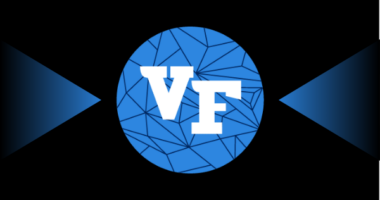In today’s ever-evolving digital landscape, a new wave of innovation is taking shape with the emergence of Web3 companies. These organizations are at the forefront of revolutionizing the way we interact with technology, offering decentralized, trustless, and secure solutions that challenge traditional centralized systems. In this article, we will explore the concept of Web3 companies, their significance in the digital world, and how they are reshaping industries. Join us on this exciting journey as we delve into the fascinating realm of Web3 and its boundless possibilities.
Web3 Companies: A Paradigm Shift in the Digital Era
The Web3 revolution marks a paradigm shift from the conventional Web2 model, where centralized authorities control and govern our online experiences. Web3, on the other hand, envisions a decentralized web that empowers individuals and enables peer-to-peer interactions, removing intermediaries and fostering a more open and democratic internet. At the core of Web3 lies blockchain technology, which ensures transparency, immutability, and security through cryptographic algorithms.
Understanding Web 3.0 Companies
Web3 companies are organizations that leverage blockchain technology, decentralized networks, and cryptographic protocols to offer innovative solutions across various sectors. These companies prioritize user privacy, data ownership, and interoperability, empowering individuals with control over their digital identities and assets. By harnessing the power of blockchain, Web3 companies eliminate the need for intermediaries, facilitating direct interactions between users and creating new opportunities for collaboration and value exchange.
The Key Features of Web3 Companies
Web3 companies differentiate themselves from their Web2 counterparts through a set of defining features:
- Decentralization: Web3 companies operate on decentralized networks, ensuring no single point of failure and enabling greater resilience.
- Trustless Systems: Through the use of smart contracts and cryptographic protocols, Web3 companies eliminate the need for trust in transactions, as the blockchain itself guarantees security and transparency.
- Data Ownership and Privacy: Web3 companies prioritize user data ownership, providing individuals with control over their personal information and enabling them to choose how and where their data is shared.
- Interoperability: Web3 companies strive for interoperability, allowing different blockchain networks and applications to seamlessly communicate and collaborate.
- Tokenization: Tokens are a fundamental component of Web3 companies, representing digital assets, governance rights, or utility within their respective ecosystems.
Web 3.0 Companies in Action: Transforming Industries
Web3 companies can potentially disrupt a wide range of industries, revolutionizing existing business models and paving the way for novel applications. Let’s explore some sectors where Web3 companies are making significant strides:
1. Finance and Banking:
Web3 companies are redefining the financial landscape by offering decentralized finance (DeFi) solutions. These platforms enable individuals to access banking services, such as lending, borrowing, and asset management, without relying on traditional financial intermediaries. By leveraging blockchain technology, DeFi platforms enhance financial inclusivity, reduce transaction costs, and eliminate the need for complex documentation and intermediaries.
2. Supply Chain and Logistics:
Web3 companies are transforming the supply chain and logistics management by leveraging blockchain’s immutable ledger and smart contracts. These technologies enable transparent tracking and tracing of goods, reducing fraud, counterfeiting, and inefficiencies. Through Web3 solutions, stakeholders can ensure the authenticity, quality, and ethical sourcing of products, fostering greater trust and transparency within supply chains.
3. Digital Identity and Personal Data:
Web3 companies address the growing concerns around personal data privacy and security. By using decentralized identity solutions, individuals can manage their digital identities securely, controlling access to their personal data and selectively sharing it with trusted entities. Web3 companies are developing self-sovereign identity (SSI) systems that eliminate the need for centralized authorities to store and manage personal information, providing individuals with greater control over their digital identities.
4. Content Creation and Distribution:
Web3 companies are revolutionizing the content creation and distribution landscape by introducing decentralized platforms. These platforms leverage blockchain technology to ensure fair and transparent compensation for content creators, remove intermediaries, and enable peer-to-peer content sharing. Web3-based platforms also address issues of censorship and copyright infringement, allowing creators to maintain ownership and control over their work.
5. Healthcare and Medical Records:
Web3 companies are exploring the potential of blockchain technology in the healthcare industry. By securely storing medical records on a decentralized ledger, patients have greater control over their health data, while healthcare providers can access accurate and up-to-date information. Web3 solutions in healthcare can improve data interoperability, enhance patient privacy, and enable seamless sharing of medical records across different healthcare providers.
6. Energy and Sustainability:
Web3 companies are driving innovation in the energy sector by leveraging blockchain and smart contract technologies. These solutions enable peer-to-peer energy trading, where individuals can directly buy and sell renewable energy without the need for traditional energy suppliers. Web3 platforms facilitate transparent tracking of energy production and consumption, incentivize renewable energy generation, and promote energy efficiency.
Frequently Asked Questions
What is the difference between Web2 and Web3 companies?
How do Web3 companies ensure the security of user data?
What role do tokens play in Web3 companies?
Are Web3 solutions accessible to everyone?
What are the challenges facing Web3 companies?
How can individuals get involved with Web3 companies?
Conclusion: Embracing the Web3 Revolution
The rise of Web3 companies marks a new era of innovation, trust, and decentralization. These companies are reshaping industries by introducing secure and transparent solutions that prioritize user control, data ownership, and collaboration. From finance to healthcare, supply chain to content creation, Web3 companies are unlocking the potential of blockchain technology to create a more inclusive and democratic digital world. As we embrace the Web3 revolution, it is crucial to stay informed, adapt to evolving technologies, and explore the endless possibilities that Web3 companies offer.












